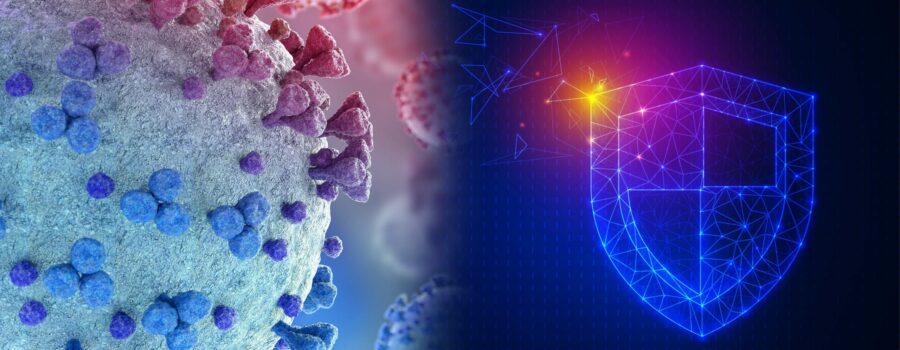On a very basic level, the COVID-19 pandemic has changed how organizations work for years to come. The labor force has moved out of places of business and into their homes as the requirement for social distancing has increased. Cybercrime generally spikes during seasons of emergency, which is what we have seen during the pandemic. Cybercriminals are misusing the progressing emergency for their own benefit. Online protection associations are announcing phenomenal degrees of cybercrime. One of the biggest reasons is that since emergencies come without a warning, it gives organizations very minimal timeframe to upgrade their computing services. This makes the organizations very vulnerable to cyber attacks and a goldmine for cybercriminals. COVID has forced online protection experts to change their needs and exercises, expanded their responsibilities, and quantity of gatherings they have need to join, and increased feelings of anxiety related to their positions.
An overview by CNBC tracked down that 85% of innovation heads (e.g., Chief Information Security Officers (CISO) and others), announced that half of their labor force is telecommuting. Work from home represents a novel network protection hazard for organizations. Employees could be working from unsecure Wi-Fi, which necessitates organizations to take proactive network protection estimates, such as upholding VPNs. For the duration of the pandemic, network safety firms will be working tirelessly to ensure firewalls, VPNs, and other necessary security measurements are intact to avoid cyber attacks and hacking of sorts for organizations and frameworks of their customers. On the off chance that phishing tricks and COVID-19 related digital assaults proceed to rise, and if prominent cases hit the media, online protection firms will see an expansion in customers. The new ordinary of telecommuting includes its own pressing factors along with everything else, with 61% of the security experts communicating concern about the requirements for quick, agile solutions. What might ordinarily be a drawn-out project – to give an employee a protected workspace at home – has unexpectedly become a short-term necessity.
Organizations understand the advantages of remote work. Companies can save money on office space and working expenses. Employees appreciate a superior work-life balance and can encounter expanded degrees of joy and occupation fulfillment. Above all, the well-established myth of telecommuters being ineffective and “not really working” is being refuted. On the off chance that more organizations choose to accept remote work when this is over, they should more investments in network safety to guarantee their frameworks and employees are ensured. The cybersecurity industry is set to assume a significant role in both combatting this pandemic virtually from cyber threats; furthermore, assisting organization with reshaping and revamping their networks later.
To add to the everchanging environment of the new normal, there will also be a huge effect on the industry as we proceed onward from the pandemic. Conditions will vary as indicated by the business, yet advanced organizations remain to emerge from this infection much improved. Additionally, with a surge in monetary cyberattacks, organizations previously excluded from certain network protection consistence norms will now need to consent. This, for the most part, applied to organizations who can keep more flexible principles because of the low measure of online installments they handled; this move will require tighter network protection measures.
As an executive in the cybersecurity services for KIRO Group, the pandemic has not only taught us how to better manage and service our clients, but how to better ourselves more efficiently to ensure cyberattacks are resolved more rapidly than ever before. We must be proactive in our approach rather than reactive as that tends to be too late in most scenarios; and not only do we lose the confidence of our clients, but also the confidence in ourselves knowing we could have prevented an attack from occurring only if we had been proactive. Industry experts must work together in tackling this hurdle moving forward in order to secure a better future for our clients and remove complications. Here at KIRO Group, we tend to do just that; Simplify The Complicated.
References
Pipikaite, A. (17 Mar 2020). Why cybersecurity matters more than ever during the coronavirus pandemic.
Security, H. N. (2020). The COVID-19 pandemic and its impact on cybersecurity.




